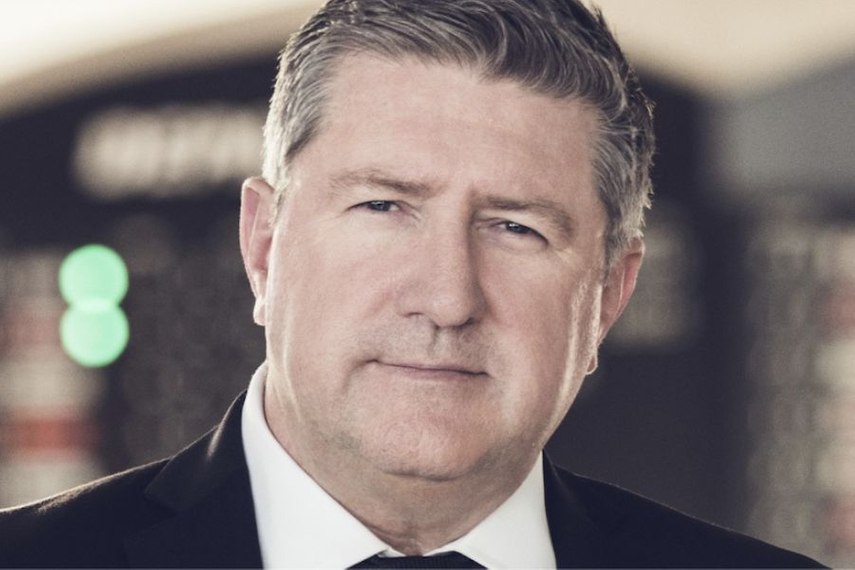
Omnicom on Tuesday (27 August) unveiled the Omnicom Advertising Group (OAG), a new structure that aligns its creative agencies globally under one leadership team.
Troy Ruhanen, formerly CEO of TBWA Worldwide, will lead OAG as CEO. Deepthi Prakash, international president and chief product officer of TBWA Worldwide, is promoted to COO of OAG, and Denis Streiff, CFO of TBWA Worldwide, is promoted to global CFO OAG.
OAG will oversee Omnicom creative networks including BBDO, TBWA, DDB and The Collective, which includes Goodby Silverstein & Partners, GSD&M, Merkley & Partners and Zimmerman.
In addition to TBWA US CEO Erin Riley, who is promoted to fill Ruhanen's post as TBWA Worldwide CEO, Omnicom global creative agency leaders will report to OAG leadership.
This includes BBDO’s recently-promoted global CEO Nancy Reyes, DDB global CEO Alex Lubar and The Collective CEO James Fenton.
The new structure will take effect on January 1.
According to Ruhanen, OAG aims to bolster Omnicom’s agency brands while scaling access to tools, technology and talent that sits around the network globally.
“We know that certain talent are attracted to certain agency cultures, and our clients prefer to have lots of choices rather than just the one solution on offer. So, it's really important that the agency brands are strong,” he said. “But we have the ability to use scale to our advantage.”
With the new structure, OAG leadership will be able to more easily identify and scale existing solutions, platforms or investments across its creative agencies and clients globally. For instance, if a team in Finland or South Africa has developed a cutting-edge platform or way of working, OAG can bring that to clients and teams around the world.
OAG is a response to AI and digital transformation that has reshaped the creative industry and competitive landscape. Particularly for creative agencies, scaled access to investments in generative AI, data and other technologies is becoming a competitive advantage.
“It's probably more relevant than ever to be able to benefit from our scale,” Ruhanen said.
Additionally, as clients seek more integrated and tailored solutions from agencies, OAG will help facilitate access to talent and teams across the network, while simultaneously providing talent with mobility across different agencies and client teams.
“In the past, a lot of us tended to hold on to the [talent] that we have because we were fighting for our personal brand success,” Ruhanen said. “How do we really look at getting the best talent for our clients, the best solution and collaborating together?” He pointed to his nearly nine years at BBDO and Reyes’ recent move from TBWA to BBDO as examples of Omnicom’s track record with talent mobility.
Omnicom does not plan to merge or sunset any agencies as part of the new structure, and will pitch solutions as OAG or as individual agencies, depending on the client's needs. “We have far greater flexibility to be able to meet the needs of the client,” Ruhanen said.
The model follows a structure Omnicom has implemented in other disciplines, including Omnicom Media Group, Omnicom PR Group and Omnicom Health Group.
“The [creative] agency world really is—I wouldn't say it's the last area—but it's close to being that,” Ruhanen said, adding that Omnicom’s creative agencies have already started to work this way behind the scenes.
While OAG will add leaders in specialist areas in the months to come, the intention is not to build a “holding company within a holding company,” Ruhanen said.
He added that he will judge his own and the group’s success by each of the individual agencies' success, and that as competitors merge agency brands and allow them to fade to the background, maintaining strong brands and cultures is a competitive advantage.
“This doesn't come at the sacrifice of the agency brands,” he said. “It's there to help them.”




.jpg&h=334&w=500&q=100&v=20250320&c=1)

.jpg&h=334&w=500&q=100&v=20250320&c=1)


.jpg&h=334&w=500&q=100&v=20250320&c=1)

.png&h=334&w=500&q=100&v=20250320&c=1)

.jpg&h=268&w=401&q=100&v=20250320&c=1)

.jpg&h=268&w=401&q=100&v=20250320&c=1)



